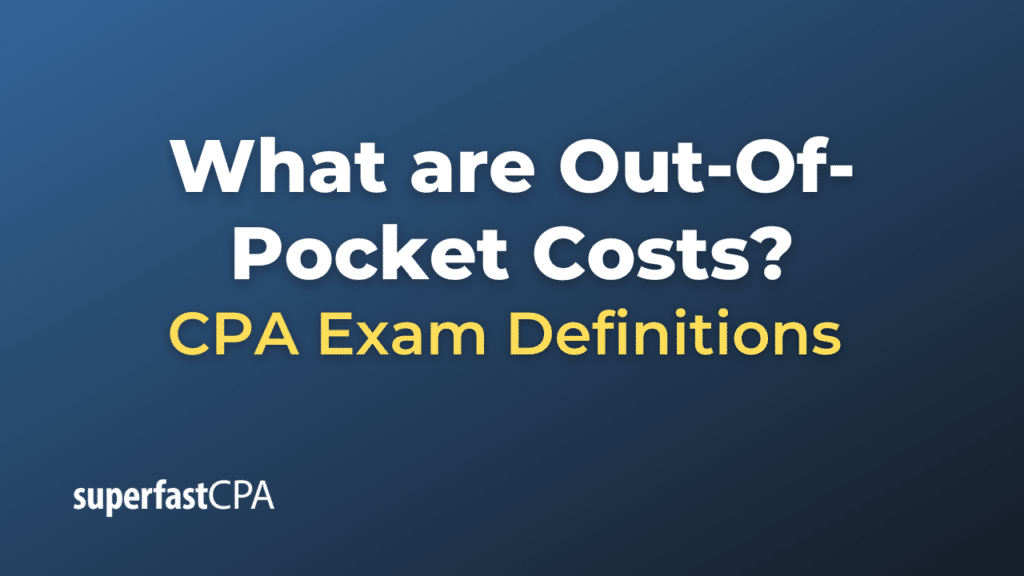Out-Of-Pocket Costs
Out-of-pocket costs refer to expenses that an individual or a company must directly pay out from their own funds. These costs can be contrasted with indirect costs, which are expenses that are not directly tied to a specific action or purchase, or costs that are reimbursed by another party.
In a personal finance context, out-of-pocket costs could include expenses like rent, groceries, or gasoline for your car – basically, any expense that you directly pay for yourself without reimbursement.
In a healthcare context, out-of-pocket costs refer to the portion of healthcare or prescription costs that the patient must pay themselves, which could include copayments, deductibles, and coinsurance. These costs are often a key component of healthcare insurance policies.
For businesses, out-of-pocket costs could include direct expenditures such as payments for raw materials, employee wages, or rent for office space.
Out-of-pocket costs are a key factor in budgeting and financial planning for both individuals and businesses, as they represent the actual cash needed to cover expenses.
Example of Out-Of-Pocket Costs
Let’s consider two examples, one personal and one business-oriented.
Personal finance example:
Let’s say you have a health insurance plan with a $500 deductible and 20% coinsurance. You need a surgery that costs $5,000.
First, you would pay your $500 deductible. The remaining $4,500 would then be subject to your 20% coinsurance, meaning you would pay 20% of $4,500, or $900.
In this case, your out-of-pocket costs for the surgery would be $500 (deductible) + $900 (coinsurance) = $1,400.
Business example:
Suppose you run a small bakery. Your out-of-pocket costs would include expenses like:
- Flour, sugar, eggs, and other baking ingredients
- Utilities like water and electricity
- Salaries for your employees
- Rent for the bakery space
If in a month, you spend $1,000 on ingredients, $200 on utilities, $3,000 on salaries, and $1,500 on rent, your total out-of-pocket costs for that month would be $1,000 (ingredients) + $200 (utilities) + $3,000 (salaries) + $1,500 (rent) = $5,700.
These are the direct expenses you pay from your business funds without any reimbursement.













